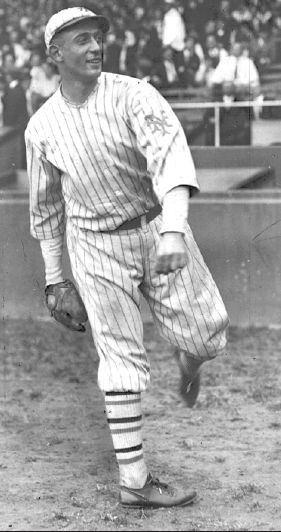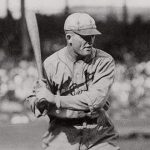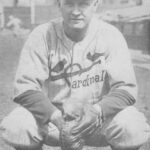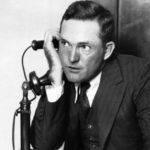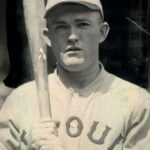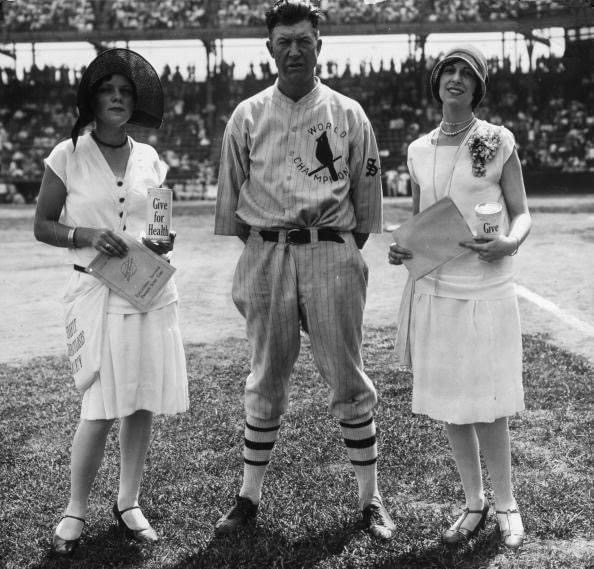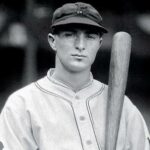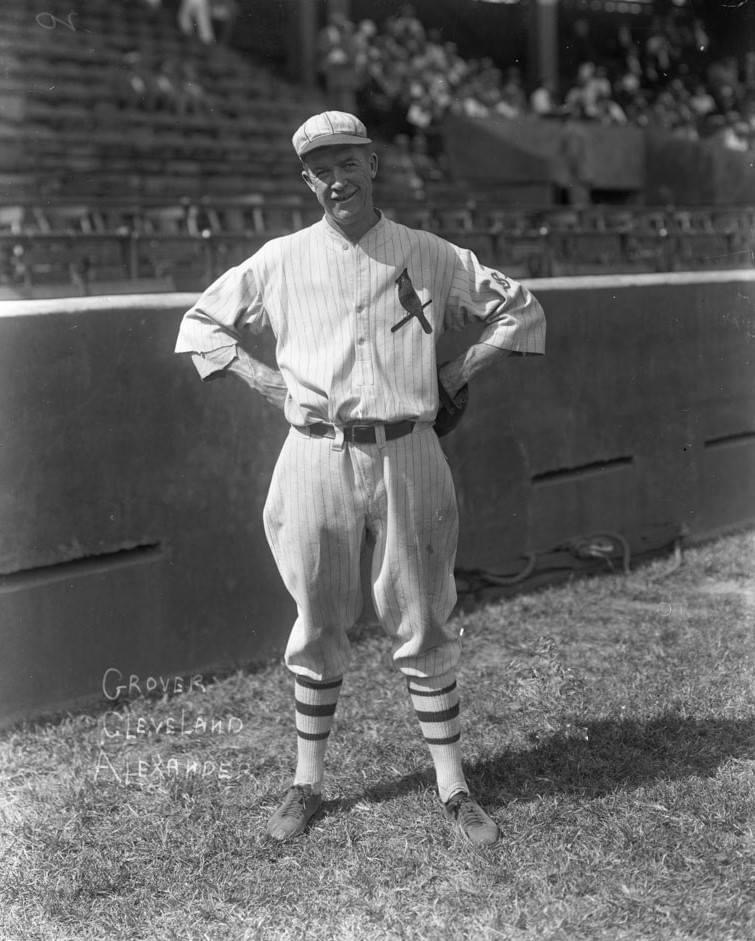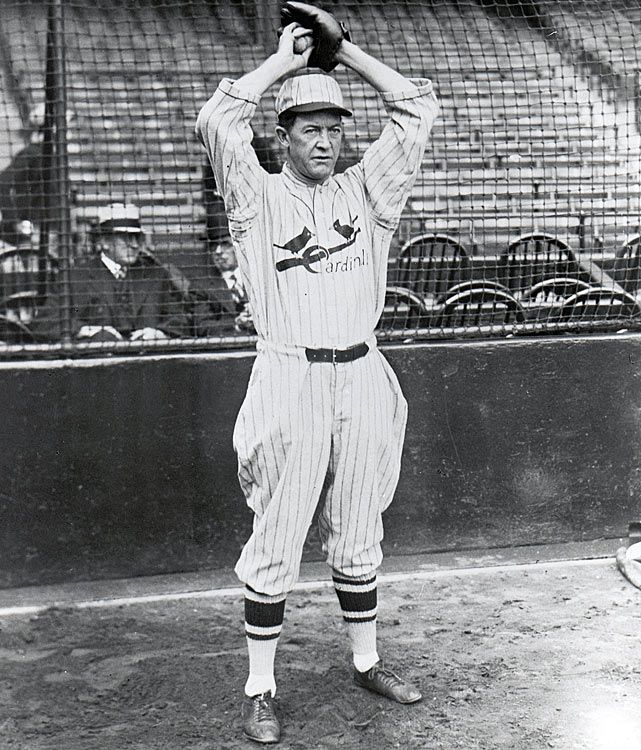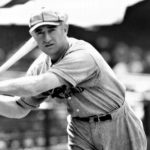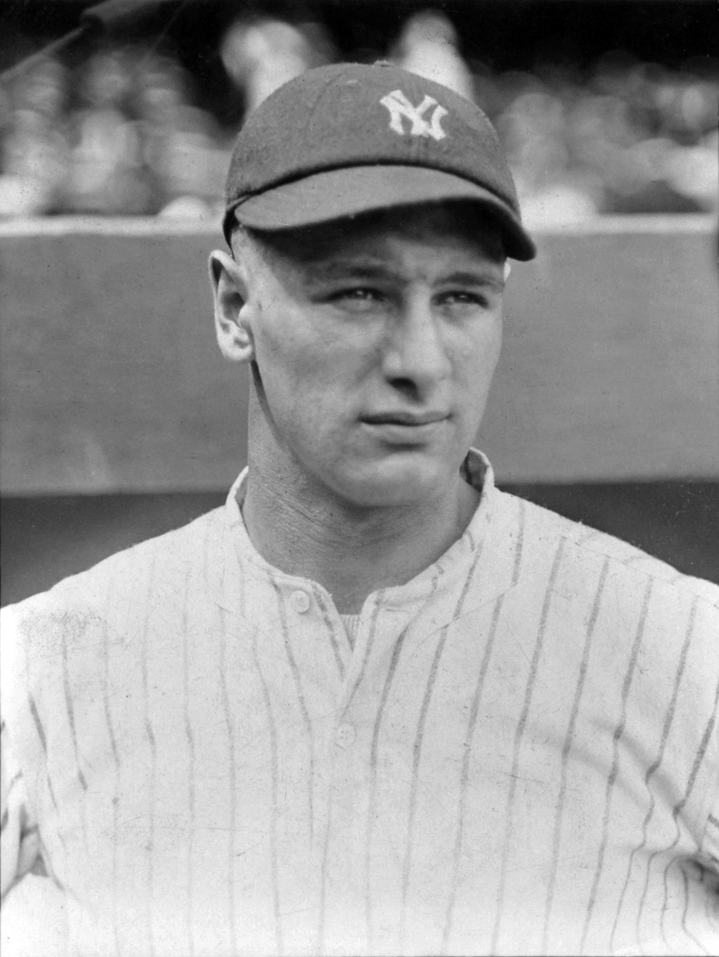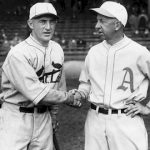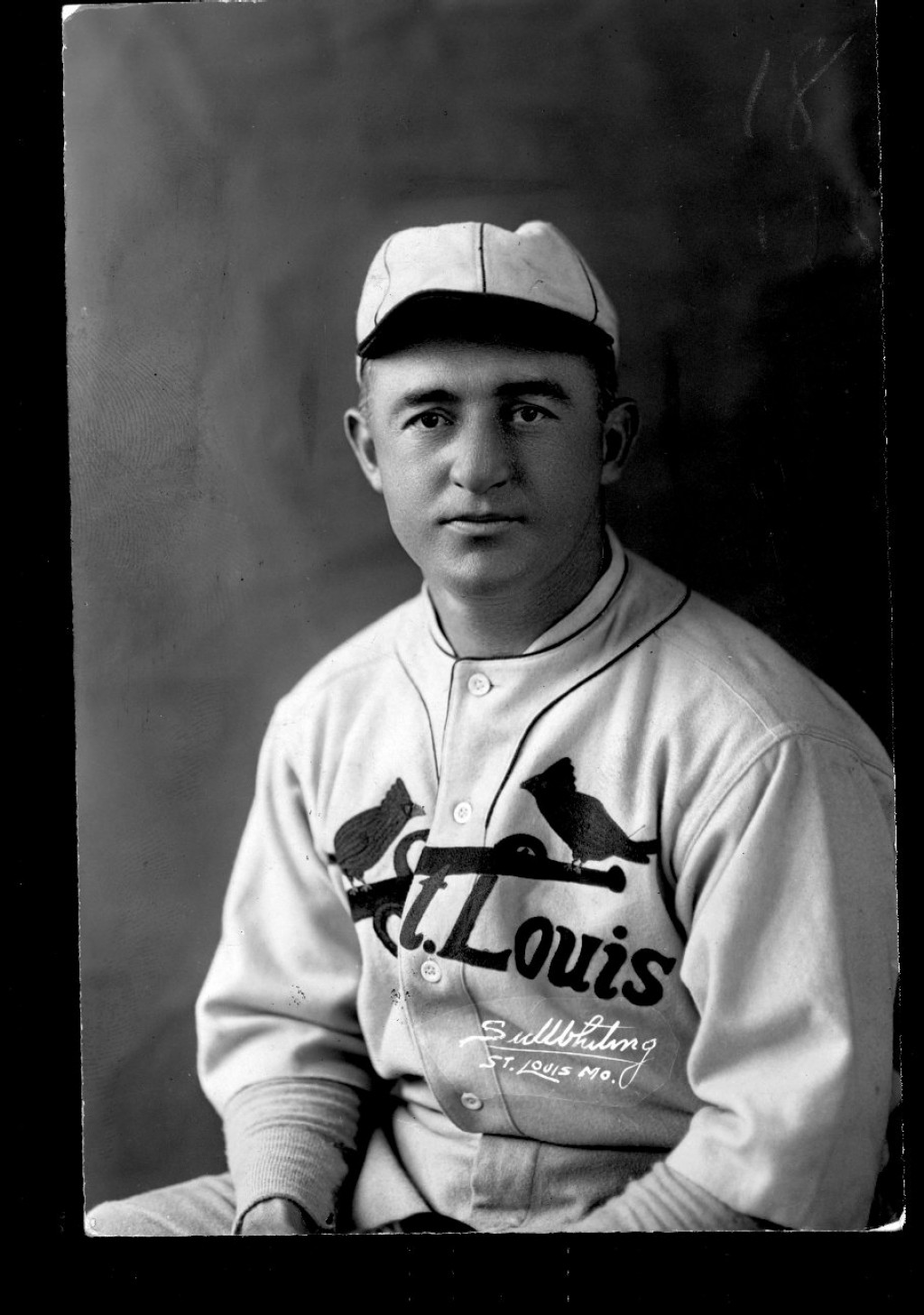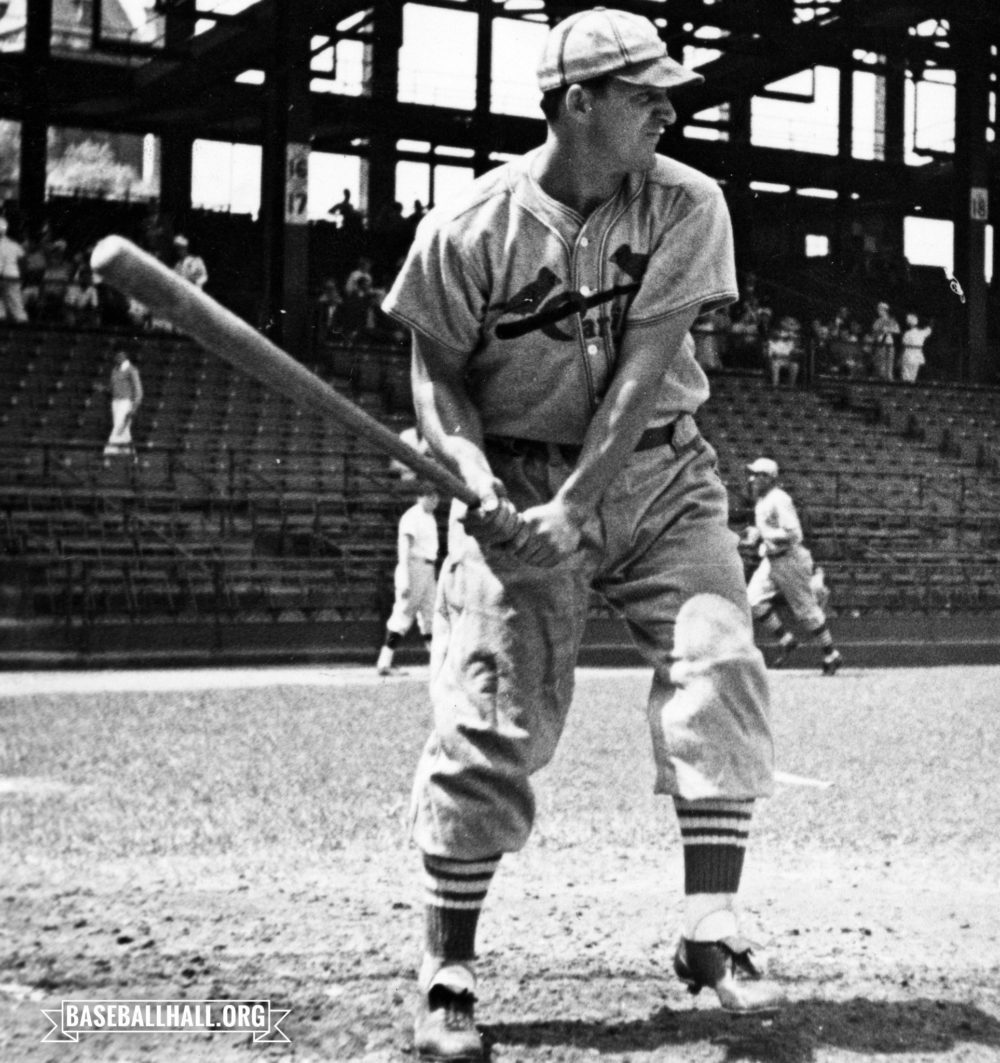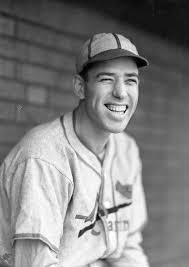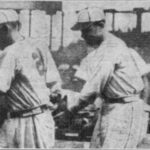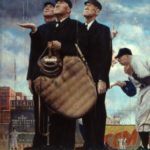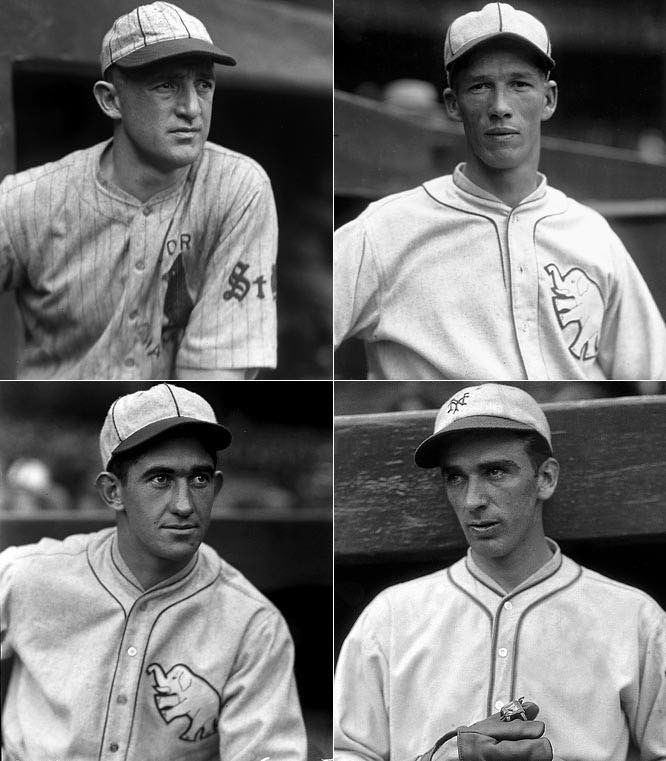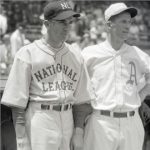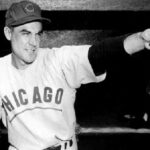Frankie Frisch
Positions: Second Baseman and Third Baseman
Bats: Both • Throws: Right
5-11, 165lb (180cm, 74kg)
Born: September 9, 1897 in Bronx, NY
Died: March 12, 1973 in Wilmington, DE
Buried: Woodlawn Cemetery, Bronx, NY
High School: Fordham Prep (Bronx, NY)
School: Fordham University (New York, NY)
Debut: June 17, 1919 ( 4,755th in MLB history)
vs. CHC 1 AB, 0 H, 0 HR, 0 RBI, 0 SB
Last Game: August 5, 1937
vs. BSN 1 AB, 0 H, 0 HR, 0 RBI, 0 SB
Hall of Fame: Inducted as Player in 1947. (Voted by BBWAA on 136/161 ballots)
View Frankie Frisch’s Page at the Baseball Hall of Fame (plaque, photos, videos).
Full Name: Frank Francis Frisch
Nicknames: The Fordham Flash
View Player Bio from the SABR BioProject
Baseball Reference Page
Nine Players Who Debuted in 1919
Frankie Frisch
Bucky Harris
Lefty O’Doul
George Uhle
Curt Walker
Dickie Kerr
Bernie Friberg
Chick Galloway
Virgil Barnes
The Frankie Frisch Teammate Team
C: Jimmie Wilson
1B: George Kelly
2B: Larry Doyle
3B: Fred Lindstrom
SS: Travis Jackson
LF: Joe Medwick
CF: Chick Hafey
RF: Ross Youngs
SP: Jesse Barnes
SP: Dizzy Dean
SP: Paul Dean
SP: Jesse Haines
M: John McGraw
Notable Events and Chronology for Frankie Frisch Career
Frankie Frisch
The unquestioned leader of the Cardinals’ famed “Gas House Gang,” Frankie Frisch was hardly welcomed with open arms by St. Louis fans when he first joined the Cardinals prior to the start of the 1927 campaign. Even though Frisch played exceptionally well for the New York Giants the previous few years, Cardinals fans objected when their team acquired him for fellow future Hall of Fame second baseman Rogers Hornsby during the off-season. St. Louis supporters acknowledged the excellence of Frisch, who batted well over .300 in each of the previous six seasons, while leading the National League at different times in runs scored, hits, and stolen bases. But they hated to part with Hornsby, who had been the senior circuit’s dominant player since the beginning of the decade.
Nevertheless, Frisch quickly won over the St. Louis fans with his outstanding hitting and defense, superb baserunning, and aggressive style of play that became a trademark of the Cardinals in subsequent seasons. The second baseman had one of his finest all-around years in 1927, finishing among the league leaders with a .337 batting average, 112 runs scored, and 208 hits, topping the circuit with 48 stolen bases and placing second in the league MVP voting to Paul Waner at season’s end. Frisch continued to ingratiate himself to Cardinals fans in the years that followed, leading St. Louis to four pennants and two world championships between 1928 and 1934.
Biography:
The son of German immigrants, Frank Francis Frisch was born in the Bronx, New York on September 9, 1898. After graduating from Fordham University, where he starred in baseball, football, basketball, and track, Frisch joined the New York Giants in mid-1919 without playing as much as a single game of minor league ball. The switch-hitting infielder spent the final three months of the campaign filling in at both second and third base, batting just .226, but stealing 15 bases in only 54 games.
In spite of his early lack of success at the plate, The Fordham Flash, as Frisch came to be known, quickly became a favorite of Giants manager John McGraw, who admired the young infielder’s speed, athleticism, versatility, and aggressiveness. McGraw installed Frisch as the team’s starting third baseman early the following year, and also named him team captain shortly thereafter. Frisch responded by batting .280, driving in 77 runs, and finishing third in the league with 34 stolen bases.
McGraw used Frisch extensively at both second and third base in each of the next two seasons, during which time the young infielder established himself as one of the senior circuit’s most dynamic players. After leading the National League with 49 stolen bases in 1921, while also finishing among the leaders with a .341 batting average, 100 runs batted in, 121 runs scored, 211 hits, and 17 triples, Frisch batted .327, scored 101 runs, and stole 31 bases the following year. The Giants defeated the Yankees in the World Series both years, with Frisch compiling batting averages of .300 and .471 in the two Fall Classics.
Led by Frisch, who became the team’s full-time second baseman in 1923, the Giants captured the National League pennant in each of the next two seasons as well. Frisch topped the circuit with 223 hits in 1923, while also placing among the leaders with a .348 batting average, 111 runs batted in, 116 runs scored, and 29 stolen bases. He followed that up in 1924 by batting .328, compiling 15 triples, and leading the league with 121 runs scored, en route to earning a third-place finish in the league MVP voting. Although the Giants lost the World Series both years, Frisch posted batting averages of .400 and .333 in the losing efforts.
Frisch played well in both 1925 and 1926, but McGraw took out much of his frustration on his team’s captain when the Giants failed to win the pennant either year. After being berated by McGraw in front of the entire team for missing a sign during an August 1926 loss, Frisch left the team, bringing to an end his previously close relationship with his manager. The Giants traded Frisch and pitcher Jimmy Ring to the St. Louis Cardinals at the end of the season for the equally unhappy Rogers Hornsby, whose relationship with St. Louis’s management had deteriorated as well.
Faced with the unenviable task of replacing the National League’s greatest player in St. Louis, Frisch exhibited the same fire and competitiveness with which he played the game his entire career. In addition to posting outstanding offensive numbers, he led all-league second basemen in fielding average, while also compiling an all-time single-season record 641 assists and 1,059 chances at second base.
Sportswriter Damon Runyon praised Frisch for his fielding ability, saying: “His range was such that he played second base, some of the center field, and a slice of right field too.”
Frisch’s exceptional all-around performance in 1927 earned him a second-place finish in the league MVP voting, prompting longtime St. Louis Post-Dispatch sportswriter Bob Broeg to later say, “Frisch didn’t make them forget the Rajah (Hornsby), but he made them remember the Flash.”
Frisch continued to excel at second base for the Cardinals in each of the next four seasons, leading the team to the National League pennant in 1928, 1930, and 1931, and to the world championship in the last of those seasons. In addition to batting over .300, he also scored more than 90 runs each year. Frisch had one of his finest offensive seasons in 1930, batting .346, scoring 121 runs, and driving in a career-high 114 runs. He followed that up by hitting .311 and topping the senior circuit with 28 stolen bases in 1931, en route to leading the Cardinals to the world championship and capturing league MVP honors.
Although Frisch’s offensive numbers fell off somewhat in subsequent seasons, he remained the leader and driving force behind the St. Louis “Gas House Gang” squad that won the World Series in 1934. Named player-manager of the Cardinals in 1933, Frisch led a rowdy and raucous collection of hard-nosed players that included the Dean brothers, Joe Medwick, Leo Durocher, Pepper Martin (a former hobo), and Ripper Collins to victory over the Detroit Tigers in the 1934 Fall Classic. The fiery and combative Cardinals took on the personality of their skipper, whose hitting style reflected his overall attitude, according to Hall of Fame pitcher Burleigh Grimes, who said, “That Frisch was a sassy kid…but he had a lot of guts. I’d try to drive him back but he’d still lean in there and hit me to left field.”
Frisch adopted the same aggressive approach to managing, taking every possible opportunity to confront, embarrass, and intimidate umpires. He furiously disputed any call made against St. Louis, hurling his glove around the field and stomping his cap into shreds.
Frisch continued to manage the Cardinals until 1938, one year after he retired as an active player. The second baseman ended his career with a .316 batting average, 2,880 hits, 1,244 runs batted in, 1,532 runs scored, and 419 stolen bases. He batted over .300 in 13 of his 19 seasons, topping the .330-mark on six separate occasions. Frisch also knocked in more than 100 runs and surpassed 200 hits three times each, scored more than 100 runs a total of seven times, and stole more than 30 bases seven times. One of the most difficult men in baseball to strike out, he fanned more than 20 times in a season only twice in his career, whiffing a total of only 272 times in more than 10,000 total plate appearances. Frisch led the league in stolen bases three times, and he also topped the senior circuit in hits and runs scored once each.
After leaving the Cardinals organization, Frisch did radio play-by-play for the Boston Braves in 1939, before managing the Pittsburgh Pirates from 1940 to 1946. He rejoined the Giants in 1947, the same year in which the members of the BBWAA elected him to the Hall of Fame. Frisch served one year as a radio announcer for the Giants, and another as a coach, before taking over the managerial reigns of the Chicago Cubs for three seasons in 1949. Frisch resumed his announcing career with the Giants in 1952, although he was forced to curtail his activities after he suffered a heart attack in September of 1956. Frisch later served as a member of the Hall of Fame’s Committee on Baseball Veterans, eventually becoming chairman of the group. During his time on the committee, Frisch used his strong and persuasive personality to get many of his former Giants and Cardinals teammates who had previously been passed on by the members of the BBWAA elected to Cooperstown. Among those players who Frisch argued for extensively were George Kelly, Fred Lindstrom, Jesse Haines, Dave Bancroft, Chick Hafey, Ross Youngs, and Rube Marquard – each of whom’s selections has drawn a considerable amount of criticism through the years.
Frisch died in Wilmington, Delaware on March 12, 1973, from injuries suffered during a car accident he was involved in near Elkdon, Maryland one month earlier. The 74-year-old Frisch had been returning to his home in Rhode Island from a Veterans Committee meeting in Florida when he lost control of his car. He died in the same manner as other New York Giant Hall of Famers Mel Ott and Carl Hubbell.
@ET-DC@eyJkeW5hbWljIjp0cnVlLCJjb250ZW50IjoicG9zdF90YWdzIiwic2V0dGluZ3MiOnsiYmVmb3JlIjoiTGVhcm4gTW9yZSBhYm91dCB0aGUgdGVhbXMsIHBsYXllcnMsIGJhbGwgcGFya3MgYW5kIGV2ZW50cyB0aGF0IGhhcHBlbmVkIG9uIHRoaXMgZGF0ZSBpbiBoaXN0b3J5IC0gLSAtIC0gLSAtIC0gIiwiYWZ0ZXIiOiIiLCJsaW5rX3RvX3Rlcm1fcGFnZSI6Im9uIiwic2VwYXJhdG9yIjoiIHwgIiwiY2F0ZWdvcnlfdHlwZSI6InBvc3RfdGFnIn19@
Factoids, Quotes, Milestones and Odd Facts
Played For
New York Giants (1919-1926)
St. Louis Cardinals (1927-1937)
Managed
St. Louis Cardinals (1933-1938)
Pittsburgh Pirates (1940-1946)
Chicago Cubs (1949-1951)
In the September 25, 1946 issue of The Sporting News, Frisch the manager is described this way:
“Frisch, well liked off the field, is a demon when a game is going on. Even his own players shudder at his tirades.”
Best Season, 1921
Frisch led the NL in just one category – stolen bases (49), but he was among leaders in many more. He was 7th in batting (.341), 9th in slugging (.485), 8th in OPS (.870), 2nd in games, 2nd in runs (121), 2nd in hits (211), 5th in total bases (300), 8th in doubles and home runs, 3rd in triples, 7th in RBI (77), and 8th in walks. Splitting his time between third base and second, he made 33 errors (no one’s perfect).
Awards and Honors
1931 NL MVP
Line Drives: Links on the Web about Frankie Frisch
“Sports Flashes” with Frankie Frisch
Post-Season Appearances
1921 World Series
1922 World Series
1923 World Series
1924 World Series
1928 World Series
1930 World Series
1931 World Series
1934 World Series
Notes
Three teammates of Frisch’s were elected to the Hall of Fame while Frisch was on the Veterans Committee: Jesse Haines, Chick Hafey and George Kelly. Most experts agree that they are three of the weakest inductees ever.
All-Star Selections
1933 NL
1934 NL
1935 NL
Replaced
Larry Doyle
Other Resources & Links
View Player Info from the B-R Bullpen
View Player Bio from the SABR BioProject


